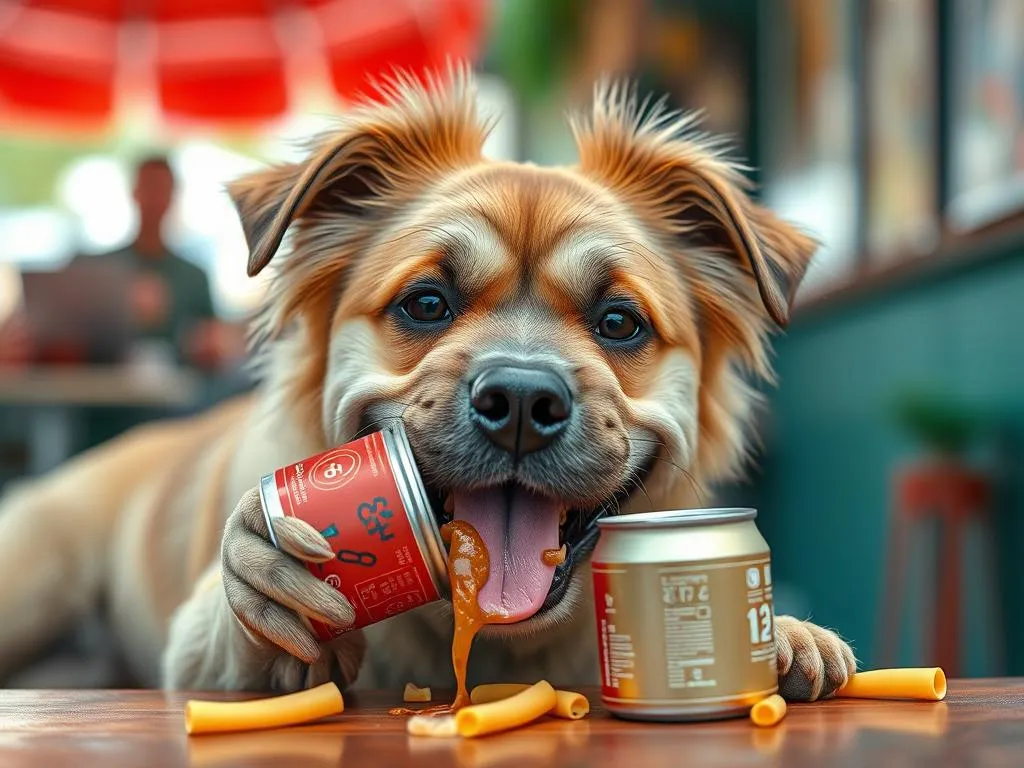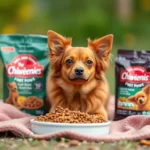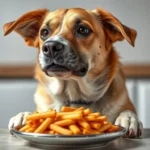
Introduction
Dog nutrition is a critical aspect of pet ownership that often goes overlooked. Just like humans, dogs require a balanced diet to maintain their health and vitality. With the rise of social media and the increasing trend of sharing meals with our furry friends, many dog owners find themselves questioning what human foods are safe for their pets. One such curiosity that has emerged is, can dogs eat boba? Understanding the nutritional value of foods we consume is paramount in ensuring our dogs lead healthy lives.
In this blog post, we will explore the intricacies of dog nutrition, uncover what boba is, and determine whether it is safe for dogs to consume.
Understanding Dog Nutrition
Essential Nutrients for Dogs
Dogs, like all living beings, require a variety of nutrients to thrive. Here are the essential components of a well-balanced dog diet:
-
Proteins: Proteins are vital for growth, maintenance of body tissues, and the production of enzymes and hormones. High-quality proteins should be the foundation of your dog’s diet.
-
Carbohydrates: While dogs can derive energy from carbohydrates, they do not require them as much as proteins and fats. However, whole grains and vegetables can provide necessary fiber.
-
Fats: Healthy fats are crucial for energy and help with the absorption of fat-soluble vitamins. Omega-3 and Omega-6 fatty acids are particularly beneficial for skin and coat health.
-
Vitamins and Minerals: These micronutrients support various bodily functions, including immunity, bone health, and cellular processes.
Common Nutritional Myths
Despite the wealth of information available, several misconceptions about dog diets persist. For instance, many dog owners believe that dogs should be fed primarily meat, while others think all human food is harmful. In reality, dogs require a balanced diet tailored to their specific needs, and certain human foods can be beneficial when given in moderation.
What is Boba?
Definition and Origin
Boba, also known as bubble tea, originated in Taiwan in the 1980s. It has since gained global popularity and is characterized by its chewy tapioca pearls, often served in sweetened tea or milk-based drinks. The cultural significance of boba extends beyond mere taste; it represents a blend of tradition and modernity in culinary experiences.
Ingredients in Boba
Boba consists of various components that contribute to its unique texture and flavor:
-
Tapioca Pearls: Made from tapioca starch derived from the cassava root, these pearls are the hallmark of boba drinks.
-
Sweeteners and Flavorings: Most boba drinks contain added sugars or sweeteners, which enhance the overall flavor.
-
Other Common Additives: Ingredients such as milk, fruit flavors, and syrups are frequently added to boba drinks, further complicating their nutritional profile.
Can Dogs Eat Boba?
Safety of Boba for Dogs
The question remains: can dogs eat boba? The answer is more nuanced than a simple yes or no. The individual ingredients found in boba can impact a dog’s health differently:
-
Tapioca Pearls: While tapioca is not toxic to dogs, it is primarily a carbohydrate source with limited nutritional value.
-
Sweeteners: Many boba drinks contain sugars or artificial sweeteners like xylitol, which are harmful to dogs and can lead to serious health issues.
-
Dairy and Other Additives: If boba drinks contain milk or other common allergens, these could pose a risk to dogs, especially those with lactose intolerance.
Nutritional Value of Boba for Dogs
When assessing whether boba is suitable for dogs, it’s essential to consider its nutritional value. Boba primarily consists of carbohydrates with minimal protein, vitamins, or minerals. Here’s a breakdown of its typical nutritional components:
-
Calories: A serving of boba can contain a significant amount of calories primarily from sugars.
-
Nutrients: Boba lacks essential nutrients that are vital for a dog’s health, making it a poor substitute for dog-friendly snacks.
For comparison, dog-friendly snacks like carrots or sweet potatoes provide vitamins, minerals, and fiber without the added sugars and potential allergens.
Expert Opinions
Veterinarians and pet nutritionists generally advise against feeding dogs boba. The consensus is that while the tapioca itself may not harm dogs, the overall composition of a boba drink often includes harmful ingredients. As Dr. Sarah Johnson, a veterinary nutritionist, puts it: “It’s best to stick with treats designed specifically for dogs to ensure they meet their dietary needs.”
Potential Health Risks
Choking Hazards
One of the most significant risks associated with boba is the potential for choking. The size and texture of boba pearls can pose a hazard, especially for smaller dogs. It’s essential to monitor any consumption closely and avoid giving boba to dogs known to gulp their food quickly.
Sugar and Caloric Intake
High sugar content in boba can lead to serious health issues for dogs, including obesity and diabetes. Excessive calorie intake from sugary treats can disrupt a dog’s balanced diet, leading to weight gain and associated health problems.
Allergic Reactions
Some ingredients in boba, such as dairy or gluten, can trigger allergic reactions in dogs. Signs of allergies may include itching, digestive upset, or respiratory issues. If you suspect your dog has ingested boba and shows any unusual symptoms, consult a veterinarian immediately.
Alternatives to Boba
Dog-Friendly Treats
If you’re looking for safe and healthy snacks for your dog, consider these options:
-
Fresh fruits: Apples (without seeds), blueberries, and bananas can be great treats.
-
Vegetables: Carrots, green beans, and sweet potatoes are nutritious and safe for dogs.
-
Homemade Dog Treats: You can easily make dog treats at home using dog-safe ingredients. Here’s a quick recipe:
Peanut Butter and Pumpkin Dog Treats
- Ingredients:
- 1 cup pumpkin puree
- 1/2 cup peanut butter (ensure it’s xylitol-free)
- 2 cups whole wheat flour
-
1 egg
-
Instructions:
- Preheat the oven to 350°F (175°C).
- Mix all ingredients in a bowl until combined.
- Roll dough and cut into shapes.
- Place on a baking sheet and bake for 20-25 minutes until golden.
Human Foods Dogs Can Eat
When introducing new foods to your dog’s diet, always proceed with caution. Here’s a list of safe human foods that dogs can enjoy:
- Blueberries
- Carrots
- Green beans
- Pumpkin (plain, not spiced)
- Peanut butter (in moderation)
Always consult your veterinarian before making any significant changes to your dog’s diet.
Conclusion
In conclusion, while can dogs eat boba? might spark curiosity, the answer leans toward no. Boba lacks the essential nutrients required for a dog’s health and can pose various risks, including choking hazards and possible allergic reactions. Instead, pet owners should prioritize a balanced diet specific to canine needs and explore dog-friendly snacks that provide nutritional value without the complications associated with human foods.
Understanding dog nutrition is vital for ensuring our dogs live healthy, happy lives. As responsible pet owners, we must make informed choices about what we feed our furry companions.
FAQs
Can dogs have tapioca?
Yes, tapioca itself is not toxic to dogs, but it should be given in moderation. It’s best to avoid boba drinks due to added sugars and other ingredients that may be harmful.
What should I do if my dog accidentally eats boba?
If your dog consumes boba, monitor for any signs of distress, such as choking or digestive issues. Contact your veterinarian if you notice any unusual behavior.
Are there any boba brands that are safe for dogs?
Generally, it’s best to avoid all boba products for dogs due to the potential presence of harmful ingredients like sugar and dairy.
How can I tell if my dog is having a reaction to a new food?
Signs of a food reaction can include itching, digestive upset, vomiting, or diarrhea. If you notice any of these symptoms after introducing a new food, consult your veterinarian.
References
- Veterinary nutrition textbooks and journals
- Pet health organizations and guidelines on dog nutrition
- Interviews with veterinarians and pet nutrition experts









